Many patients and members of staff in primary care and community mental health care services have experienced individual, interpersonal, and collective trauma (e.g., rape, domestic abuse, political terror and war). Traumatic experiences accumulate throughout a person’s life. They shape how we behave and can harm our health.
Healthcare services which do not recognise how universal and impactful trauma is may fail to engage patients in treatment and re-traumatise patients and staff. Trauma-informed organisational change programmes can improve the way a service works and prevent re-traumatisation. Many UK policies and guidelines recommend implementing trauma-informed change in healthcare organisations.
Researchers from the Centre for Academic Primary Care, University of Bristol, funded by the National Institute for Health and Care Research Bristol Biomedical Research Centre (NIHR BRC), reviewed evidence for the effectiveness of trauma-informed organisational change programmes in primary care and community mental health care. This review was part of a programme of research on trauma-informed health systems, the Trauma-informed approaches in healthcare (TAP CARE) study.
The research team found that organisations developed bespoke models of trauma-informed change tailored to their needs, abilities, and preferences. Common organisational activities included an allocated budget, ongoing training and support for all staff, identification and response to trauma, evaluation of change, changes in physical environments, cross-sector collaboration, engagement of people with lived experience and leadership support.
Researchers found some evidence to suggest that implementing programmes at an organisational level may change organisational culture and create safe environments for patients and staff. Very limited evidence suggests that these programmes may improve patient quality of life, chronic pain, and mental health. No studies measured adverse events, harm, cost effectiveness, or staff health.
Dr Natalia Lewis, lead author, said: “We conducted a methodologically robust systematic review which found a very limited and uncertain evidence for the effects of trauma-informed organisational change interventions on staff and patient outcomes, with an overall direction towards some improvement.
“Funders, commissioners, policy makers, and healthcare providers can use this evidence to inform guidelines, policies, and their decisions about developing and implementing evidence-based trauma-informed organisational change programmes in primary care and community mental health care.”
Professor Stanley Zammit, mental health theme lead, said: “The TAP CARE systematic review has provided us with valuable insights regarding the evidence supporting the implementation of trauma-informed approaches in primary care and community mental health services.
“Going forward, Natalia's work forms an integral part of Bristol BRC’s Mental Health Theme programme of work aimed at developing interventions to improve treatment access and healthcare to people with mental health difficulties.”
Paper: Trauma-Informed Approaches in Primary Healthcare and Community Mental Healthcare: A Mixed Methods Systematic Review of Organisational Change Interventions. Natalia V Lewis, Angel Bierce, Gene S Feder, John Macleod, Katrina M Turner, Stan Zammit and Shoba Dawson. Published in Health & Social Care in the Community. May 2023.
Download the infographics: TAP CARE Study infographics (PDF, 368kB)
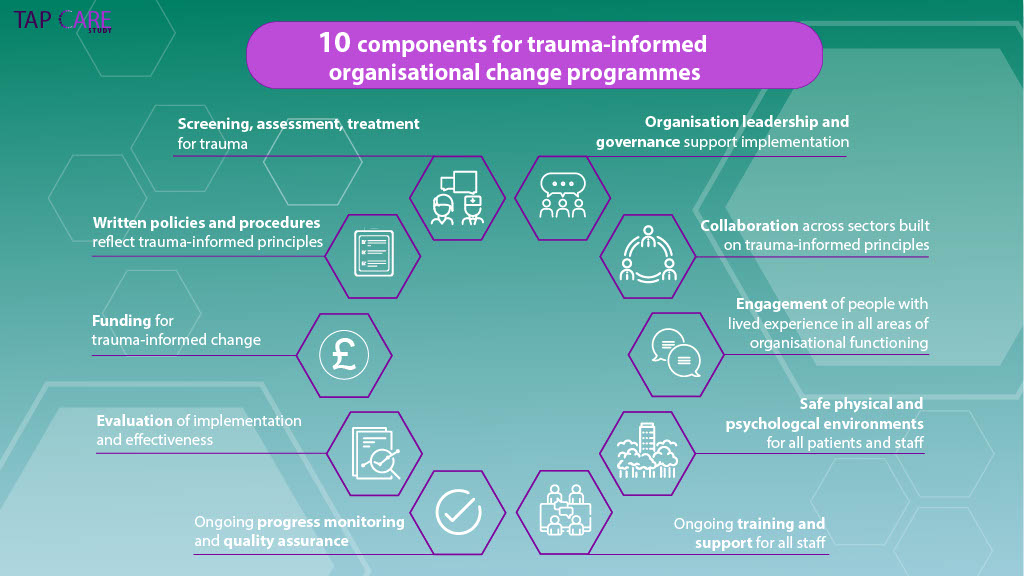
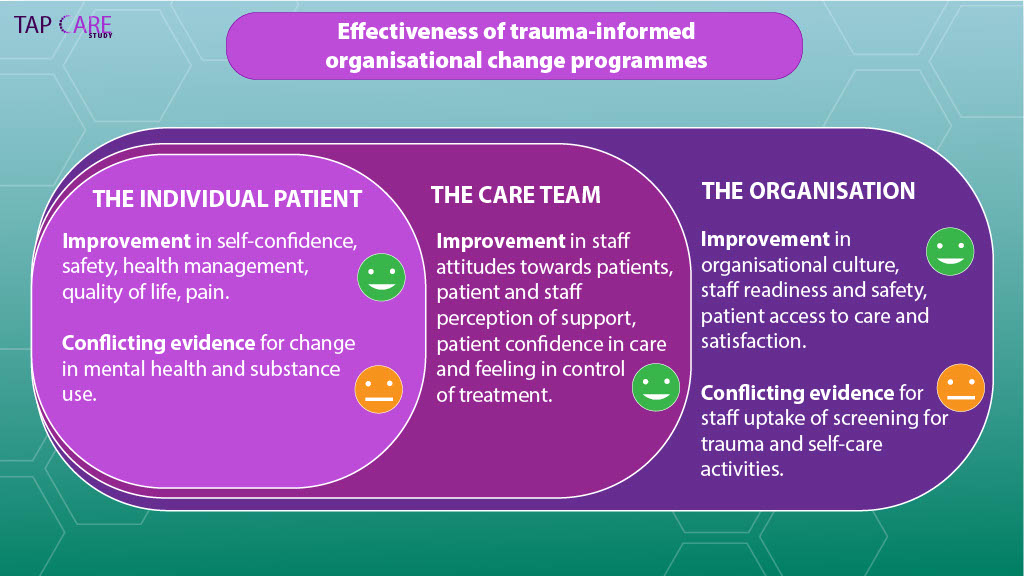
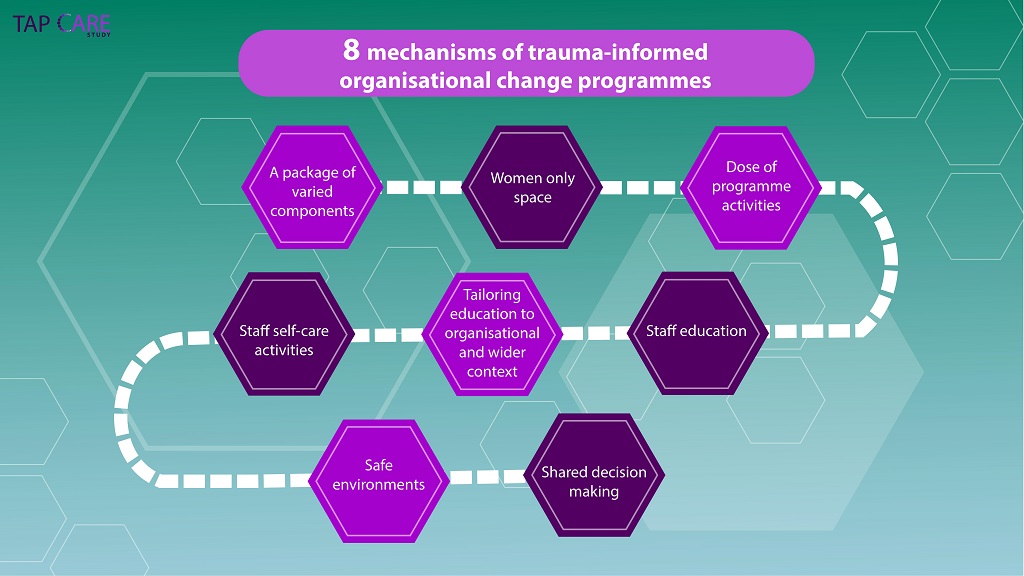
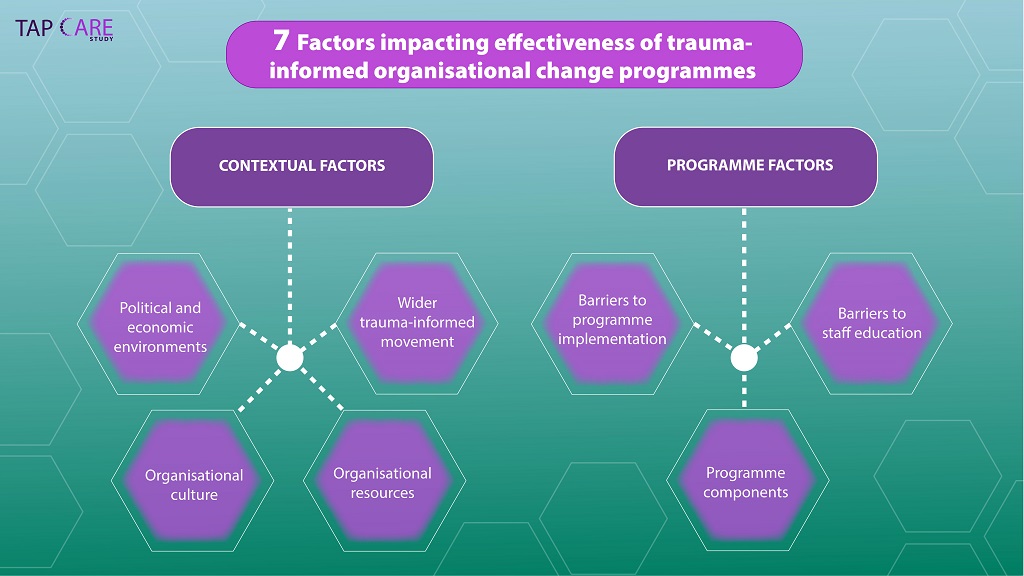
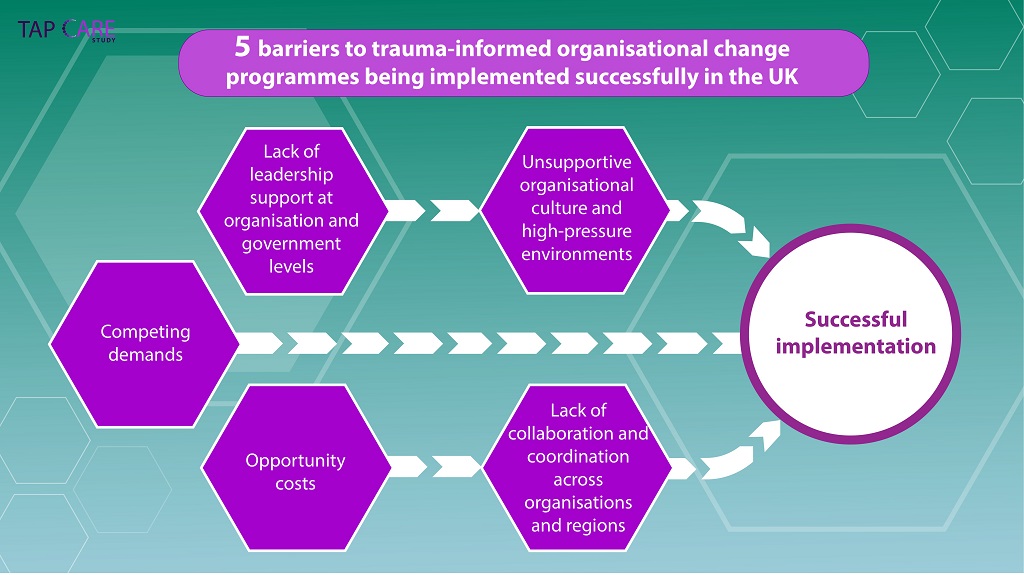
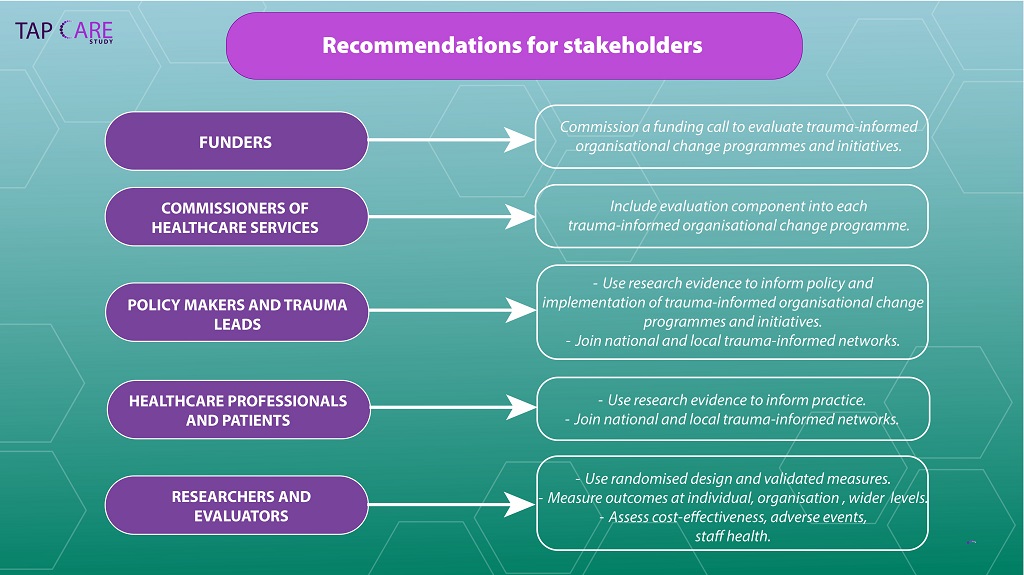
Watch the animation: